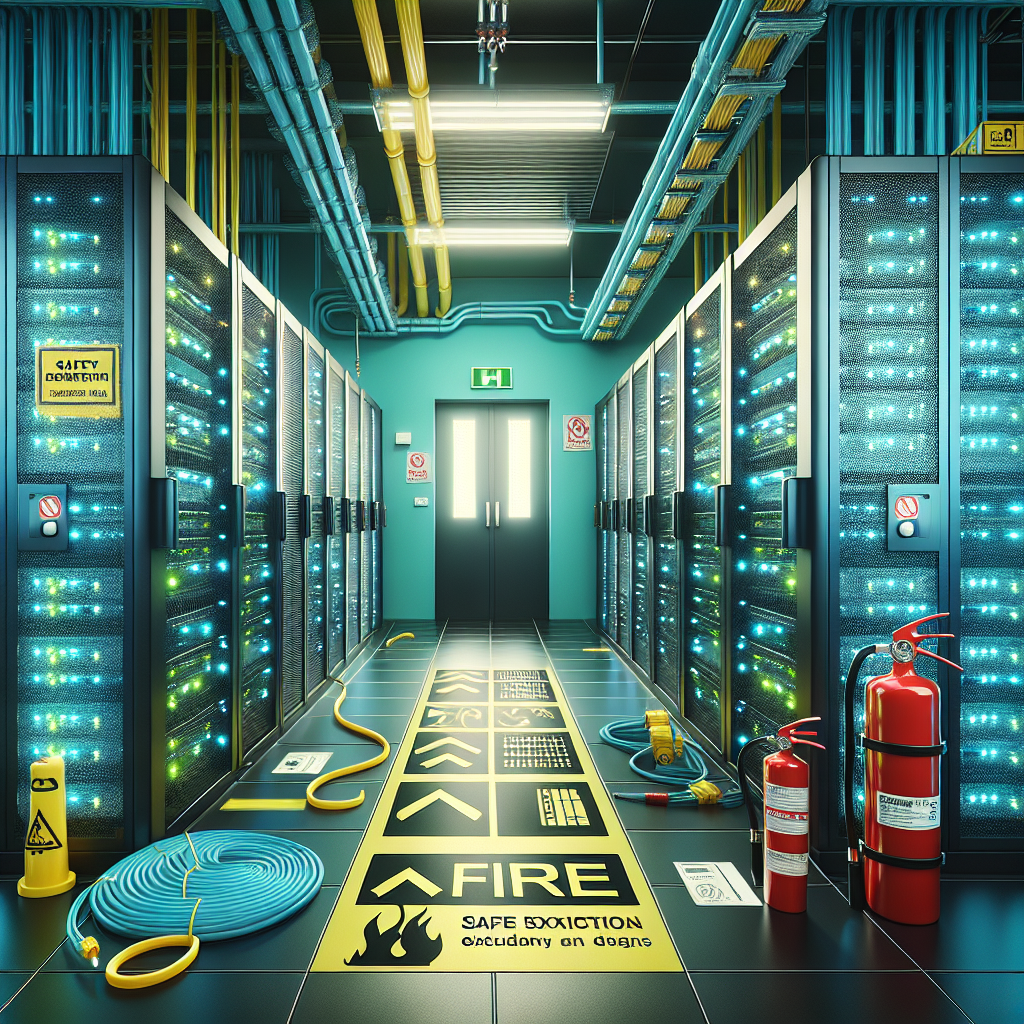Your cart is currently empty!
The Role of Fire Suppression in Ensuring Data Center Safety and Continuity

Data centers play a crucial role in today’s digital era, serving as the backbone for a wide range of industries and organizations. These facilities house vast amounts of critical data and equipment, making them susceptible to various risks, including fire. Fire suppression systems are essential in ensuring the safety and continuity of data centers.
The Role of Fire Suppression Systems
Fire suppression systems are designed to detect and extinguish fires quickly to minimize damage and downtime. In data centers, where the loss of data can have severe consequences, fire suppression systems are a critical component of the overall safety and security strategy.
There are several types of fire suppression systems commonly used in data centers, including:
1. Water-based systems: These systems use water as the extinguishing agent and are typically used in areas where there is a low risk of electrical fires. However, water-based systems can cause significant damage to equipment and data if not properly contained.
2. Gas-based systems: Gas-based systems use inert gases or chemical agents to suppress fires without causing damage to sensitive equipment. These systems are ideal for data centers as they can quickly extinguish fires without leaving residue behind.
3. Foam-based systems: Foam-based systems are designed to suppress fires by smothering them with a layer of foam. These systems are effective in extinguishing flammable liquid fires and are often used in areas where these materials are present.
The Importance of Fire Suppression in Data Centers
Data centers are at a higher risk of fires due to the presence of electrical equipment, heat-generating components, and a high concentration of combustible materials. A fire in a data center can lead to data loss, equipment damage, and downtime, all of which can have severe implications for businesses.
Fire suppression systems play a crucial role in mitigating these risks by detecting and extinguishing fires before they can spread and cause significant damage. These systems are equipped with sensors that can detect smoke or heat, triggering the release of the extinguishing agent to suppress the fire quickly.
In addition to protecting the data and equipment within the data center, fire suppression systems also help ensure the safety of employees and emergency responders. By containing fires quickly, these systems help prevent the spread of smoke and toxic fumes, minimizing the risk of injury and exposure to harmful substances.
Ensuring Data Center Safety and Continuity
To ensure the effectiveness of fire suppression systems in data centers, regular maintenance and testing are essential. It is crucial to conduct routine inspections, tests, and maintenance to ensure that the systems are functioning correctly and are ready to respond in the event of a fire.
Additionally, data center operators should have a comprehensive fire safety plan in place that outlines procedures for responding to fires, evacuating personnel, and communicating with emergency responders. Regular training and drills can help ensure that employees are prepared to respond effectively in the event of a fire.
In conclusion, fire suppression systems play a vital role in ensuring the safety and continuity of data centers. By detecting and extinguishing fires quickly, these systems help protect critical data and equipment, minimize downtime, and ensure the safety of employees. Data center operators should prioritize the installation, maintenance, and testing of fire suppression systems to mitigate the risks associated with fires and safeguard the integrity of their operations.

Leave a Reply